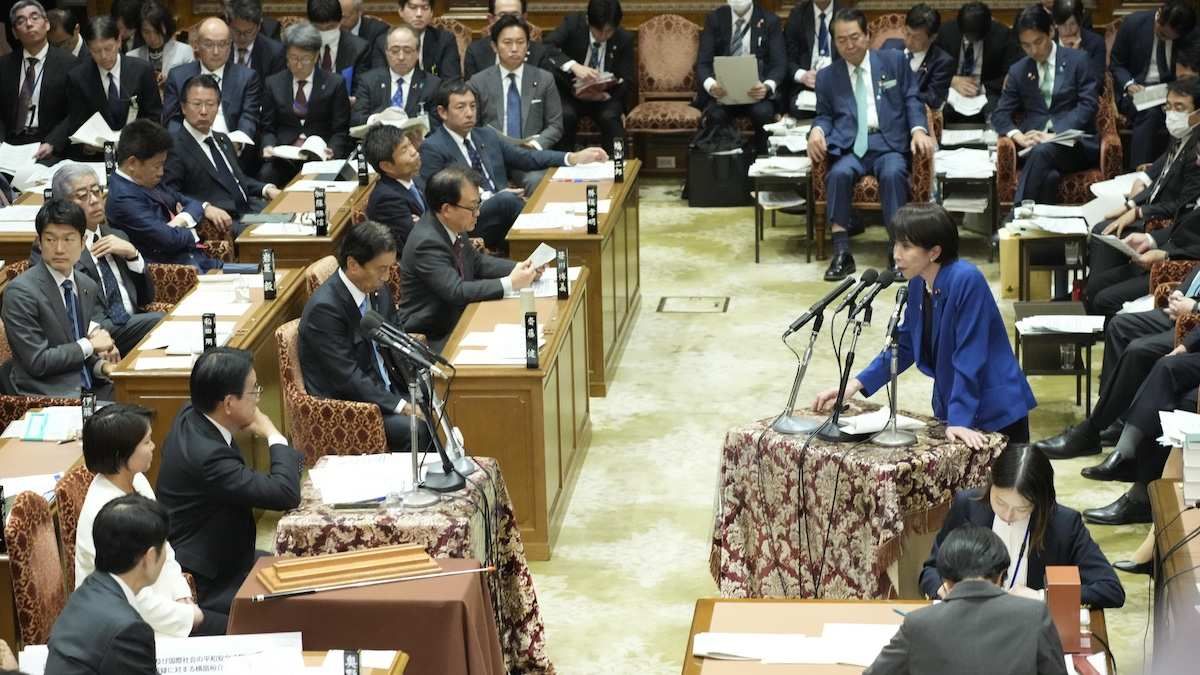Tensions between Tokyo and Beijing hit a boiling point last Friday when China accused Japan’s Prime Minister Sanae Takaichi of “a grave violation of international law.” Her alleged crime? Statements that a Chinese attack or blockade of Taiwan could threaten Japan’s survival and be met with military intervention. The ensuing diplomatic crisis has not just upended relations between China and Japan, but threatens to ensnare the United States in a geopolitical showdown in the Pacific.
Why were Taikachi’s comments so incendiary? Takaichi used the phrase, “situation threatening Japan’s survival,” to describe potential Chinese aggression towards Taiwan. That’s a specific legal designation under Japan's 2015 security legislation that allows the prime minister to deploy the military in self-defense.
This breaks with Tokyo’s traditional ambiguity on the use of force in the case of invasion, and signals publicly that it would stand with Washington in a crisis – something China considers a direct challenge to its sovereignty. Article V of the US-Japan security treaty obliges the US to defend Japan if it is attacked.
What has China done in response? Beijing has suspended seafood imports, discouraged Chinese tourists from traveling to Japan, and allowed mass cancellations of flights and tours without penalty. Concerts by Japanese artists in China have been abruptly pulled from venues and cruise ships that once filled ports in Kyushu are now being rerouted to South Korea. The goal is to hit Japan where it hurts: tourism has helped boost the economy post-Covid, and many small cities rely heavily on Chinese visitors.
On the diplomatic front, Beijing sent a letter Friday to UN Secretary-General António Guterres urging Japan to “deeply reflect upon its historical crimes,” a reference to Japan’s invasion of China during World War II, and calling on Tokyo to “retract its erroneous remarks.” On Sunday, Chinese Foreign Minister Wang Yi posted a statement to the Chinese Foreign Ministry’s website that Japan’s leadership has “said things they shouldn’t have said, and crossed a red line that should not have been touched.”
How is Japan reacting? Tokyo is not taking back Takaishi’s words, saying instead that Beijing is misinterpreting them. According to senior Japanese government spokeswoman Maki Kobayashi, “The claim our country has altered its position is entirely baseless” and Tokyo remains “committed to dialogue” with Beijing.
What’s China’s goal? Beijing hopes to frustrate Takaichi’s pledge to accelerate Japan’s military buildup and raise defense spending to 2% of GDP by fiscal year 2025, two years ahead of the target set by her predecessor, Shigeru Ishiba. According to Chong Ja Ian, an associate professor at the National University of Singapore, China is seeking “to box Takaichi in and put her on the back foot early on – so she will be more reluctant to push forward on Japan’s investment in defense.”
But so far, the public is backing the prime minister. According to David Boling, Eurasia Group’s director of Japan and Asia Trade, “Takaichi’s approval ratings are very high – even climbing higher in some polls. The Japanese public has a very negative view of China, and China’s extreme response will only reinforce that view.”
Could Japan’s position deter an invasion of Taiwan – or accelerate it? If China believes that a Taiwan crisis would trigger a US-led coalition response, Beijing could escalate its preparations to get ahead of Japan’s planned military buildup. Beijing is already conducting invasion drills using its “shadow navy,” and Chinese coast guard ships have increased their presence around the Senkaku/Diaoyu Islands, putting the Japanese air force and navy on high alert. That could increase the odds of a takeover – or an unintended encounter that could spiral into an international crisis.



















